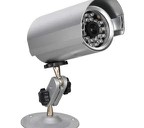|
POSITIVE VIEW: Residents and visitors praise move to beef up security in the city with 1,200 cameras KUALA LUMPUR: CITY Hall's project to install 1,200 closed-circuit television (CCTV) cameras in the capital is 75 per cent complete.  The cameras have been mounted at crime hotspots such as Bukit Bintang, Jalan Ampang, Jalan Tuanku Abdul Rahman, Brickfields and Jalan Dato Onn, among others. Mayor Datuk Seri Ahmad Phesal Talib said the project was one of the council's initiatives to combat crime in the city. "We are collaborating with Royal Malaysian Police on this project. They will identify and recommend the crime hotspots that need CCTV cameras. To date, about 300 cameras are now connected to police stations and the Integrated Transport Information System in Bukit Jalil," he said. The most recent location to be equipped with cameras was Jalan Dato Onn, near Bank Negara Malaysia. "We installed six cameras along Jalan Dato Onn in November last year. The number of snatch thefts in the area has dropped significantly since the cameras were mounted," he said. Phesal reiterated that the project's RM190 million price tag included the costs of installation and five years of maintenance. City folk, including tourists, lauded City Hall's initiative. Subhadra Nadarajah from Negri Sembilan said the CCTVs were useful in view of the higher crime rate. "I feel that it is safer to bring my family to Kuala Lumpur with watchful 'eyes' around us," he said. Canadian Sean Henderson, 47, who arrived here just a few days ago, said he was not bothered that he was being watched all the time by the cameras. He also disagreed with friends who had warned him that it wasn't safe in Kuala Lumpur. "I think that Kuala Lumpur is already a safe place and the presence of CCTV cameras will only add to the tourists' confidence that it is safe to walk around the city," he said. Mohd Aini Maraie, 43, from Ipoh, is a frequent visitor who was spending the weekend in the city with his family. He said the CCTV cameras had helped to lower the crime rate. "There should, however, be more high quality cameras capable of covering all angles in commercial areas. "Often when a crime is captured on camera, the criminal cannot be identified because the CCTV camera is only focused on one angle," he said. Aini also dismissed the notion that the CCTV cameras were an invasion of privacy. "These cameras are in public places where people are expected to behave appropriately. If they want privacy, they should stay at home," he said. Australian Sandra Wilson, 58, said CCTV cameras were nothing unusual. "I don't think it's strange because we have CCTV cameras everywhere in Australia. I think it's a good move," she said. Iraqi couple Hala Abdul Razak, 27, and Al-Mustafa Khalid, 26, had been walking around Kuala Lumpur in the six days they had been here. "We feel safe knowing that security cameras are around us," said Hala. "We are not bothered by the cameras because we know they are there for our safety," said Al-Mustafa. Brazilian Escobar Marcos, 26, has been a frequent visitor since 2006. "It is good to have surveillance cameras in the city as it will deter criminals. Knowing there are 'eyes' watching them, they will think twice before acting," he said. www.nst.com.my/streets/central/c ... -reception-1.535455
|
ADVERTISEMENT